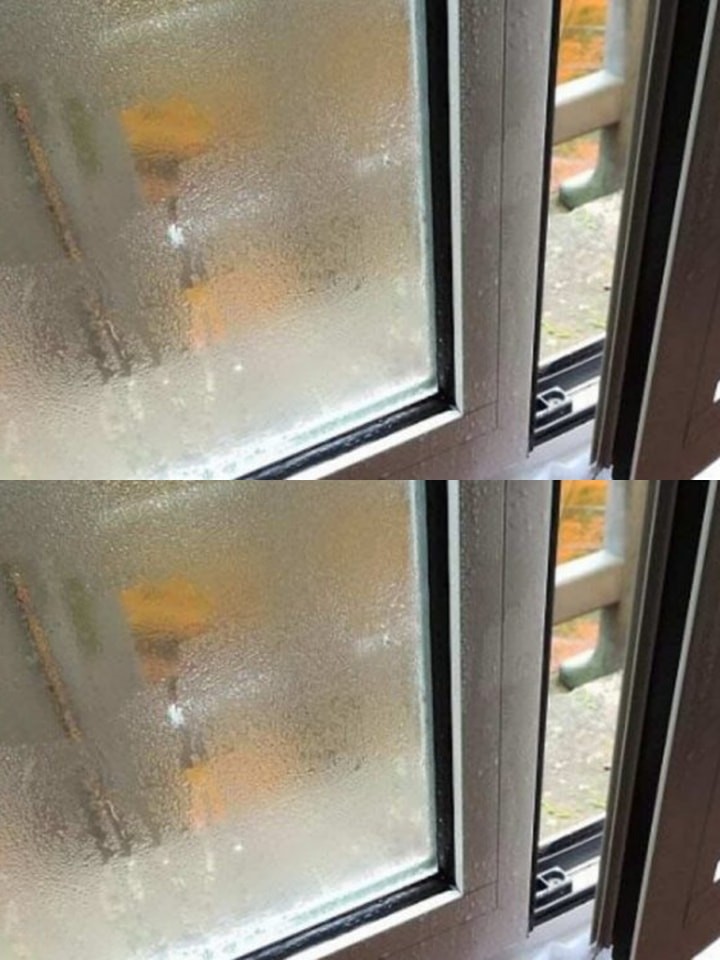ADVERTISEMENT
Condensation on windows, with 50 cents you can solve this annoying problem
Condensation on windows forms when warm, moist air in your home hits a cold window.
This is a problem that can trigger a number of problems that can be harmful to your health. Let’s see what inexpensive solution of just 50 cents we can take on.
Condensation on windows as it forms
Condensation on windows forms when warm, moist air in your home hits a cold window. The water vapor in the warm air condenses on the cold surface of the pane, forming water droplets.
Condensation on windows can cause problems such as mold and mildew, which can damage windows and cause health problems for the occupants of the home. It can also cause damage to the walls and ceiling near the windows as well as the floor below.
Condensation on the windows
To avoid the formation of condensation on the windows, it is important to maintain an adequate level of humidity inside the house, using a humidifier or dehumidifier if necessary.
In addition, it is important to ventilate the house properly by opening the windows or using an extractor hood to circulate the air. Using curtains or lowering the blinds on the windows at night can help reduce condensation in the house.
The 50 cent solution
Windows are subject to a rather annoying problem during the cold season and are not always easy to get rid of.
Fortunately, there is no shortage of solutions to effectively solve this problem.
Condensation on window panes is a common problem and can quickly lead to dampness, mold and a dull appearance. But we can rely on a simple product that is probably somewhere on the kitchen shelf.
Baking soda in a jar
How to remove condensation from windows? With baking soda, a common but versatile kitchen ingredient that is great for fighting condensation.
Very easy to use for this solution you need to dissolve a teaspoon of baking soda in a glass of hot water. Then dip a soft, clean cloth in the solution and gently start scrubbing the glass.
Finally, just remove the residue with a slightly damp cloth. One last pass and the house windows will be spotless.
How to prevent windows from fogging up
Don’t miss the continuation on the next page
ADVERTISEMENT
ADVERTISEMENT
There are several ways to prevent the windows in your house from fogging up, for example by properly ventilating, opening the windows or using an extractor hood for air circulation.
Maintaining an appropriate level of humidity in your home and good insulation of your windows will also prevent cold outside air from coming into contact with warm air in your home.
We must ensure that there is a thermal gap between the windows and the surrounding walls to prevent warm air from condensing on the cold window.
In addition, it is important to avoid placing heat sources directly near the windows, such as radiators or heaters, as this can cause the windows to fog up.
Cleaning windows
Also, clean your windows regularly to remove dust and dirt that can contribute to fogging.
It goes without saying that old windows can be less efficient and therefore less able to insulate the house from external air currents. If the windows are very old, it is advisable to consider buying new windows with double glazing and adequate seals.
Houseplants to prevent condensation on windows
Houseplants can help prevent condensation on windows as they can absorb moisture in the air and help maintain an adequate level of humidity in the room.
Some plants that are particularly effective at reducing humidity are plants like Aloe Vera, a plant known for its ability to absorb moisture from the air and is easy to grow.
Pothos are also very effective at removing moisture from the air and thrive even in low light conditions.
Houseplants
Keeping some of these plants indoors can help maintain proper humidity levels and consequently prevent condensation on windows.
It is important to note, however, that proper ventilation and insulation are still the best means of preventing condensation on windows.
ADVERTISEMENT
ADVERTISEMENT
